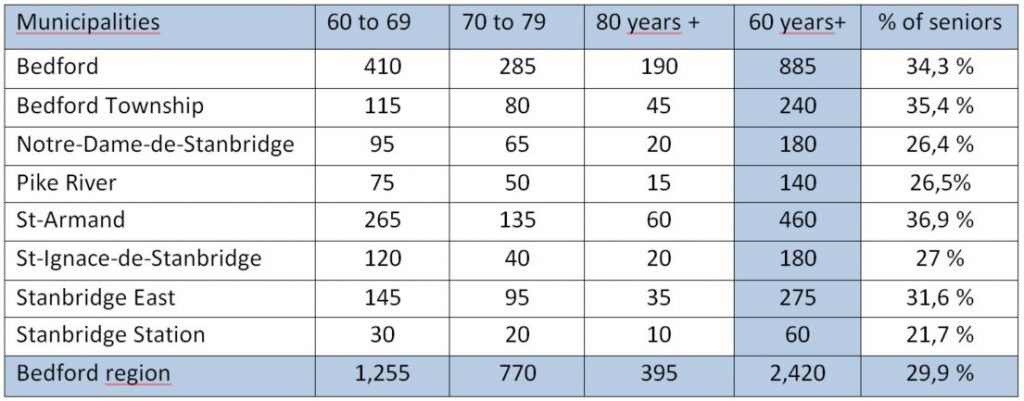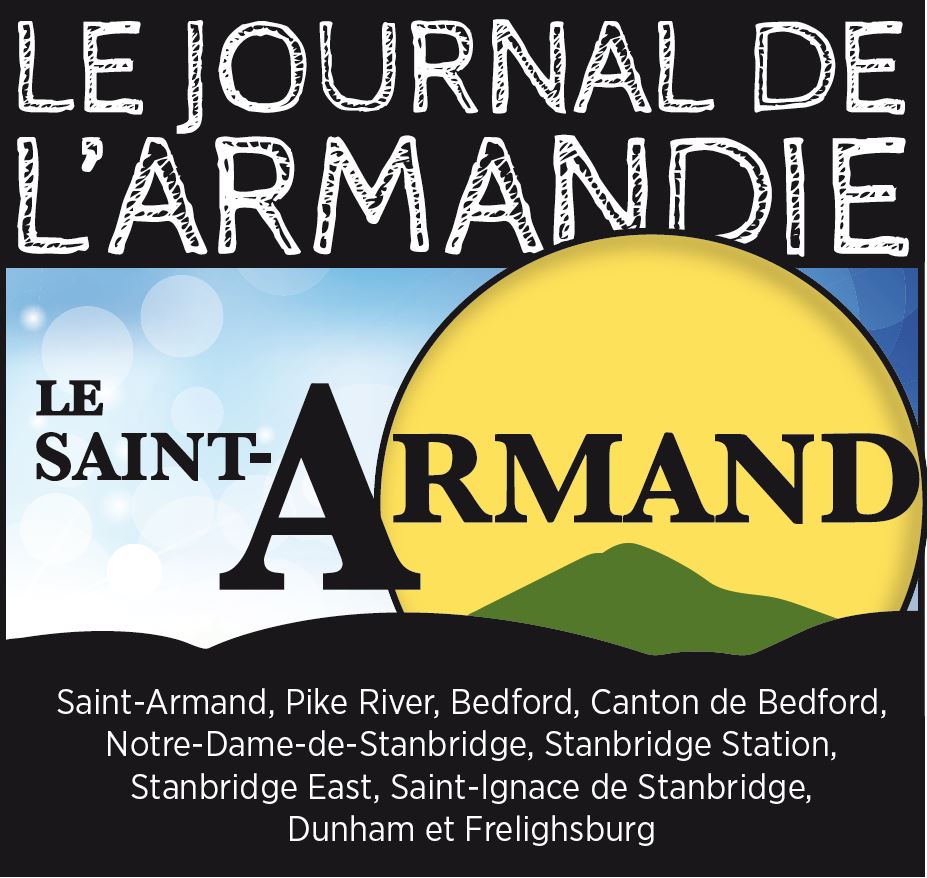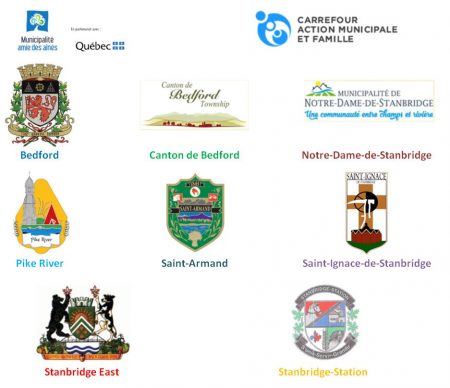It took two years of work, along with the dedication and devotion of the members of a steering committee composed of elected officials from the eight Greater Bedford area municipalities, volunteers and local community workers, to update the Seniors-friendly municipality policy for the region.
 An Age-Friendly Municipality (MADA) is committed to ensuring the well-being of its senior citizens by providing them with activities and services adapted to their needs. It promotes active living for seniors and encourage them to participate in the life of the community. Why ? Because the World Health Organization (WHO) believes that to stay healthy, older people must remain active and that, in order to increase their quality of life in old age, their participation in various activities must be facilitated. Also, their living spaces must be designed to ensure accessibility and security. Under the MADA program, the government can provide funding on an ad hoc basis to support municipalities and community organizations in their efforts to improve the well-being of seniors.
An Age-Friendly Municipality (MADA) is committed to ensuring the well-being of its senior citizens by providing them with activities and services adapted to their needs. It promotes active living for seniors and encourage them to participate in the life of the community. Why ? Because the World Health Organization (WHO) believes that to stay healthy, older people must remain active and that, in order to increase their quality of life in old age, their participation in various activities must be facilitated. Also, their living spaces must be designed to ensure accessibility and security. Under the MADA program, the government can provide funding on an ad hoc basis to support municipalities and community organizations in their efforts to improve the well-being of seniors.
This update of the Bedford Region MADA Policy results in commitments and a specific action plan for the next five years (2019-2023). Here we present a joint regional plan for the entire region. Each of the participating municipalities has also adopted its own specific commitments on the website of your municipality or on the website of the newspaper Le Saint-Armand.
In demographic terms
 Since 2001, the Bedford area has suffered the most significant population decline in the Brome-Missisquoi area. In fact, the median age is 50.5 years for the region, which is higher than the MRC (49.7 years) and the province (43 years).
Since 2001, the Bedford area has suffered the most significant population decline in the Brome-Missisquoi area. In fact, the median age is 50.5 years for the region, which is higher than the MRC (49.7 years) and the province (43 years).
According to the “Institut de la Statistique”, in 2017 the Bedford region has 30 % of people 60 years and over compared to 27.2 % in 2011. The municipality of Saint-Armand has experienced the most significant increase, of 9,7 % for the same period.
In sociocultural terms
 According to the 2016 census, people aged 65 and over whose mother tongue is English represent 30.5 % of the anglophone population in the Bedford region, which totals 21 %. Note that this percentage of English-speaking seniors is higher than the one for Brome-Missisquoi (24.7 %).
According to the 2016 census, people aged 65 and over whose mother tongue is English represent 30.5 % of the anglophone population in the Bedford region, which totals 21 %. Note that this percentage of English-speaking seniors is higher than the one for Brome-Missisquoi (24.7 %).
During the process of updating the policy, a survey was conducted among 278 seniors. Here are some highlights from the survey data and the knowledge of the steering committee participants :
- T
 he Brome-Missisquoi region is renowned for its quality of life and the beauty of its landscapes. This attraction has resulted in the establishment of neo-rural, particularly young retirees who choose the region to live their retirement. Therefor contributing to the ageing of the population.
he Brome-Missisquoi region is renowned for its quality of life and the beauty of its landscapes. This attraction has resulted in the establishment of neo-rural, particularly young retirees who choose the region to live their retirement. Therefor contributing to the ageing of the population. - The Bedford area is the most devitalized of Brome-Missisquoi.
- In the context of labor shortage in Brome-Missisquoi, it is interesting to note that the survey highlighted that 25 % of respondents would be interested in returning to casual or part-time work.
- The rural character of the region associated with an ageing population brings with it the challenge of transporting people. 44 % of survey respondents tell us that access to transportation is one of the most important measures to be able to stay at home. In addition, 44.4 % of seniors in the Bedford area are already living with a disability, which can affect transportation and housing.
- Staying at home is the first choice of seniors. The starting point of the process of leaving the house is often the loss of autonomy that results in the need for a adapted housing with services, close to their current living environment.
- The most important measures for seniors to stay at home are access to health care, support for indoor and outdoor maintenance, transportation, and frequent contact with people of all ages.
 The services and activities offered must be adapted to adequately serve the English-speaking population. Many seniors do not speak French.
The services and activities offered must be adapted to adequately serve the English-speaking population. Many seniors do not speak French.- On the social front, many seniors volunteer either with their families or with organizations. They contribute to the vitality and dynamism of the environment.
- Leisure activities are essential for seniors. They allow an active life, to break the isolation, to favor mutual assistance and the feeling of security.
- Seniors’ isolation is a reality that needs to be addressed, as three out of ten seniors live alone in the Bedford region, some of whom are vulnerable. It should be noted that since 2017, the Bedford Volunteer Center and region has developed a community work program with seniors. It aims to identify vulnerable seniors and refer them to resources that can meet their needs.
- Communication is a perpetual challenge. A widespread misunderstanding of the available services is observed. The generalization of services offered online is also a barrier to reach seniors.






